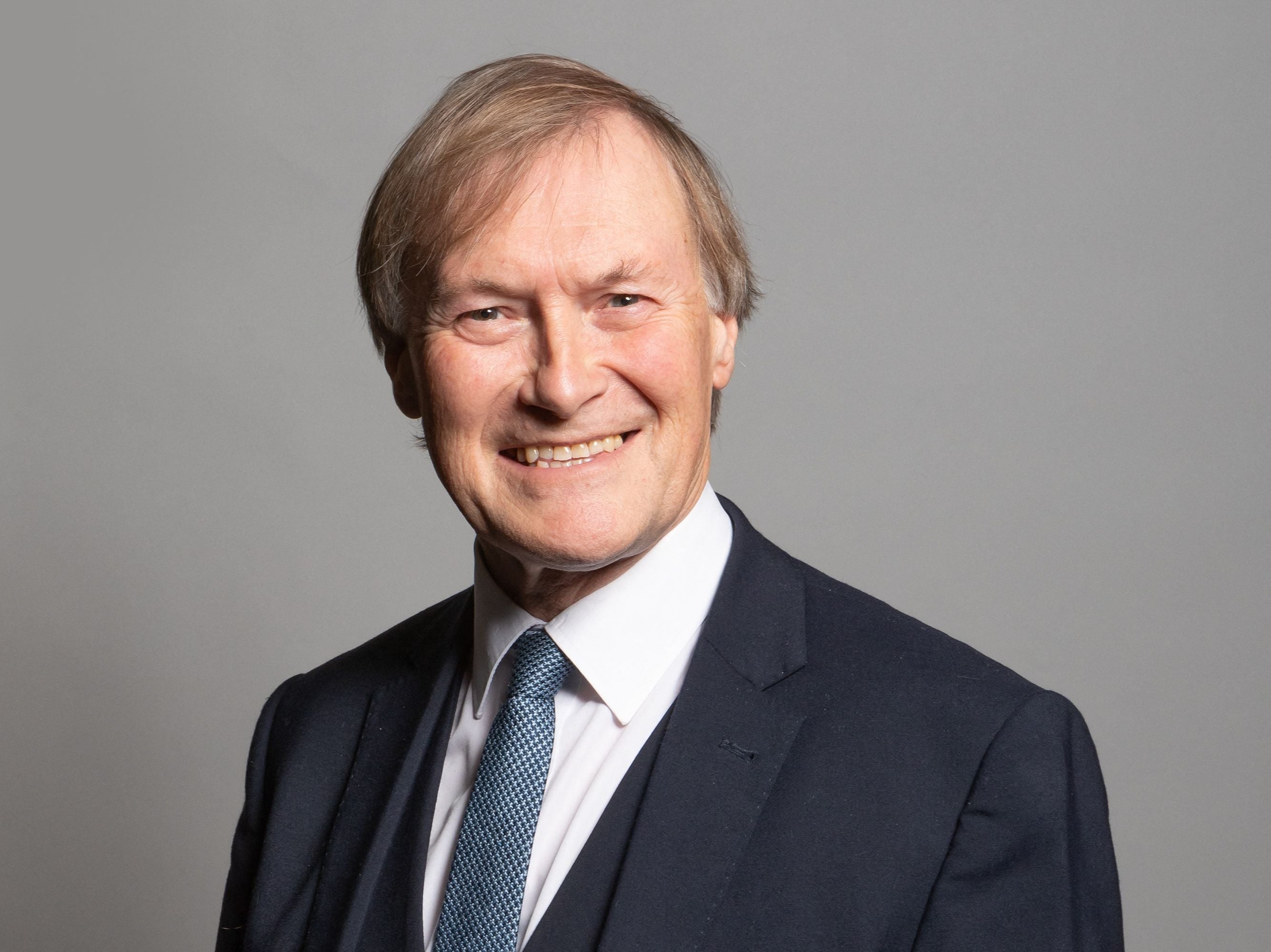David Amess: Speaker Sir Lindsay Hoyle says ‘quality of political discourse must change’ to end hate
‘The conversation has to be kinder and based on respect,’ Chorley MP says in rare intervention

The quality of political discourse in the UK “has to change” in the wake of the killing of Sir David Amess, the leader of the House of Commons has urged.
The Southend West MP and father-of-five was stabbed to death while holding his weekly constituency surgery in Essex on Friday.
The man arrested following the killing, named as 25-year-old British national Ali Harbi Ali, has been detained under the Terrorism Act and Scotland Yard said it has uncovered “a potential motivation linked to Islamist extremism”.
Coming five years after a far-right extremist murdered Labour’s Jo Cox as she made her way to see constituents in Batley and Spen, Sir David’s death was also prefaced by rising crimes against MPs and threats to their safety.
In a rare intervention, Commons Speaker Sir Lindsay Hoyle, wrote in a newspaper article that the “hate which drives these attacks has to end”, adding: “Disagreements with politicians should be solved at the ballot box, not via threats, intimidation or murder.”
“If anything positive is to come out of this latest awful tragedy it is that the quality of political discourse has to change. The conversation has to be kinder and based on respect,” Sir Lindsay wrote in The Observer.
Referencing the outpouring of sorrow and praise for Sir David from across the political spectrum, he added: “This incident has shown that there is unity across the political divide in support of democracy.”
While Sir David – one of Westminster’s longest-serving MPs – had himself written of Ms Cox’s murder that such an attack “could happen to any of us”, in a book published last December called Ayes & Ears: A Survivor’s Guide to Westminster, he had continued to champion constituency surgeries.
MPs received upgraded security measures in the wake of the Labour MP’s murder in 2016, and Sir David wrote that politicians had been “advised to never see people alone”, adding: “These increasing attacks have rather spoilt the great British tradition of the people openly meeting their elected politicians.”
His death less than a year later has, however, sparked debate about whether local surgeries represent a weak point in parliamentarians’ safety, with Tory MP Tobias Ellwood calling for face-to-face meetings with constituents to be suspended until a fresh security review has concluded.
But his former ministerial colleague David Davis argued that suspending constituency meetings “would be a terrible reflection” of what their “friend and colleague” Sir David had stood for, adding: “David himself was the ultimate constituency MP”.
Home secretary Priti Patel promised on Sunday to do “absolutely everything” to enable MPs to continue meeting their constituents face-to-face.
Sir Lindsay said he continued to urge all MPs to take up all of the security measures offered by the House of Commons security department to make their homes and offices more secure in the wake of Ms Cox’s death.
“However, we now need to take stock and review whether those measures are adequate to safeguard members, staff and constituents, especially during surgeries,” he said. “We are working closely and at pace with the Home Office and the police to identify options.”
Ms Patel said on Sunday that she is considering banning anonymity on social media in a move to stop the “cruel and relentless” online abuse of MPs and others, warning: “We can’t carry on like this.”
Sir David had also described “the fallout from social media” as a “worrying development”, and had called for the law on anonymity to be changed “as a matter of urgency”.
“My frustration is with the law governing social media generally,” the MP of 38 years wrote in his book Ayes & Ears.
Taking aim at sites hosting abusive comments “without any requirement for the abuser to leave their name and address”, he added: “It means that these ignorant cowards are allowed to get away with, quite frankly, appalling behaviour and there is no means to find out who is abusing.”
Meanwhile, data from the Metropolitan Police’s Parliamentary Liaison and Investigation Team, set up after the death of Ms Cox, suggests that reported crimes against MPs are rising – having totalled 678 between 2016 and 2020.
The team received 582 reports of malicious communications and handled 46 cases of harassment, with nine cases classified as relating to terrorism, according to the Press Association.
Join our commenting forum
Join thought-provoking conversations, follow other Independent readers and see their replies
Comments
Bookmark popover
Removed from bookmarks